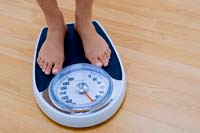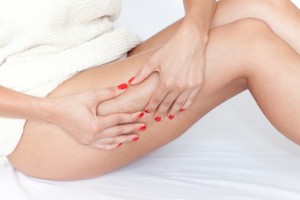A good night's sleep is good for weight control
Many Americans are including going on a diet on their list of New Year’s resolutions. If so, they might factor in getting a good night’s sleep. A new study evaluated hormonal changes that occurred with sleep deprivation and also found that lack of sleep produced hormonal changes that differed between men and women. Researchers affiliated with Columbia University (New York, New York) and St. Luke's/Roosevelt Hospital (New York, New York) published their findings in the December2012 issue of the journal Sleep.
The researchers designed a study to determine the hormonal effects of reducing sleep duration under controlled feeding conditions. The study group comprised 27 normal weight men and women between the ages of 30 and 45 years who habitually slept seven-to-nine hours per night. The study participants were studied under two sleep conditions: short (four hours in bed) or habitual (nine hours in bed) sleep. A controlled diet was provided for each four-day study period.
The study participants slept four hours a night during one stay and seven hours a night in the other, with a three-week break in between. Daytime napping was not allowed. During both stays, subjects ate a calorie-controlled diet for the first four days and had unlimited access to food on the fifth and sixth days. Blood samples were analyzed daily for seven hormones that influence appetite and food intake: glucose, insulin, leptin, ghrelin, adiponectin, total glucagon-like peptide 1 (GLP-1) and peptide YY3-36.Fasting blood samples were drawn daily and frequent blood samples were obtained throughout day four. The main outcomes measures included glucose, insulin, leptin, ghrelin, adiponectin, total glucagon-like peptide 1 (GLP-1) and peptide YY3-36 (PYY3-36) concentrations.
The researchers found that a greater weight loss occurred with the controlled diet during habitual sleep compared to shortened sleep. Body weights were reduced by 2.2 ± 0.4 pounds during habitual sleep and 1.7 ± 0.4 pounds during the short sleep phases. There was no effect of sleep duration on glucose, insulin, and leptin profiles. Ghrelin stimulates hunger and GLP-1 suppresses appetite. The researchers found that responses to these hormones differed by sex. Short sleep increased fasting and morning total ghrelin in men but not women. The reverse was observed for GLP-1: afternoon levels were lower after short sleep compared with habitual sleep in women but not men.
The authors concluded that their data suggested that, in the context of negative energy balance, short sleep does not lead to a state of increased insulin resistance; however, it may predispose to overeating via separate mechanisms in men and women. The researchers noted that the stress hormone cortisol was not measured and may have been affected by reduced sleep. They were surprised that the participants lost about two pounds during the study and note that this weight loss may have affected hormone levels. They noted that the study was conducted on normal-weight individuals; thus, the hormone changes might differ among overweight people.
Reference: Sleep
-
Easy Six Pack Abs-tips For Easy Workout
You are always busy. You don’t have enough time to go to the gy
-
Where To Find Weight Loss Food
It seems that among the many things responsible for obesity and weight
-
Stress Eating: Alternatives to Eating for Comfort in Times of Stress
Stress Eating: Alternatives to Eating for Comfort in Times of Stress
-
7 Healthy Tips For The Fastest Way To Lose Weight
Everybody has some ideas about losing we
-
13 Steps To Sustainable Fat Loss!
Trying to lose fat can b
-
The way to Shed The Fat Under Your Belly Button
Are you dying to wear that gorgeous top without having the bulging bel
- DON'T MISS
- Management Consultants! - Will You Be Overweight Forever?
- Weight Loss Strategies in Light of the Obesity Paradox
- Joint Doctor in California Recommends Weight Loss
- How To Lose Weight Effectively With These Dietary Guidelines For Weight Loss
- Smart Technique Weight Loss
- Read This Article If You Are Afraid Of Holiday Belly Bulge
- Liposuction and Other Cosmetic Surgeries
- Tips To Jump Start Fast Weight Loss Without Exercise
- Making Your Own Meal Plans With Diet Meals
- How to Enjoyably Lose Most of That Body Fat Naturally




